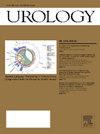Effect of Bacillus Calmette-Guérin Instillation Timing on Oncological Survivals After Transurethral Resection of Bladder Tumor
IF 2.1
3区 医学
Q2 UROLOGY & NEPHROLOGY
引用次数: 0
Abstract
Objective
To investigate whether the timing of bacillus Calmette-Guerin instillation (TTBCG), which plays a key role in treating non-muscle invasive bladder cancer (NMIBC), after transurethral resection of bladder tumor (TURBT) affects oncologic outcomes.
Methods
Patient data obtained from the Urologic Cancer Database-Bladder (UroCaD-B) of Turkish Uro-oncology Association (TUOA) were evaluated. Data from 292 patients from 12 centers with primary T1HG treated with TURBT and maintenance BCG between 2003 and 2023 were retrospectively analyzed. The population was subdivided according to TTBCG, while recurrence-free survival (RFS) and progression-free survival (PFS) were estimated by log-rank tests and univariable and multivariable regression analyses.
Results
A total of 292 patients were followed, and 86% (n = 251) of those included in the study were male. The median duration of TTBCG was 38.5 days (19-73). The median follow-up period was 38.4 months (21.5-72.1 months). During follow-up, recurrence was detected in 55 (18.5%) patients and progression was detected in 22 (7.5%) patients. In univariate Cox regression analysis, long TTBCG (> 27.5 days) was found to have a statistically significant effect on the risk of short RFS and PFS (P = .05). BCG-related side effects were not associated with TTBCG (P = .313). Kaplan-Meier analysis showed that there was a significant difference in RFS and PFS between the TTBCG groups (P = .04, P = .011, respectively).
Conclusion
In this retrospective non-randomized study, we showed the negative effects of BCG delay on progression and recurrence in T1HG patients. Therefore, we think that BCG should be instilled within 4 weeks after surgery.
卡介苗-谷氨酰胺注射时间对经尿道膀胱肿瘤切除术后肿瘤存活的影响。
目的研究经尿道膀胱肿瘤切除术(TURBT)后,在治疗非肌层浸润性膀胱癌(NMIBC)过程中起关键作用的卡介苗杆菌(TTBCG)灌注时机是否会影响肿瘤治疗效果:评估了从土耳其泌尿肿瘤协会(TUOA)膀胱泌尿肿瘤数据库(UroCaD-B)中获得的患者数据。回顾性分析了2003年至2023年期间来自12个中心的292名接受TURBT和卡介苗维持治疗的原发性T1HG患者的数据。根据TTBCG对人群进行了细分,并通过对数秩检验、单变量和多变量回归分析估算了无复发生存期(RFS)和无进展生存期(PFS):共有292名患者接受了随访,其中86%(n=251)的患者为男性。TTBCG 的中位持续时间为 38.5 天(19-73 天)。随访时间的中位数为 38.4 个月(21.5-72.1 个月)。随访期间,55 例(18.5%)患者发现复发,22 例(7.5%)患者发现病情恶化。在单变量考克斯回归分析中发现,TTBCG时间过长(>27.5天)对RFS和PFS缩短的风险有显著统计学影响(P= 0.05)。卡介苗相关副作用与TTBCG无关(P=0.313)。Kaplan-Meier分析显示,TTBCG组的RFS和PFS有显著差异(分别为p=0.04和p=0.011):在这项回顾性非随机研究中,我们发现卡介苗延迟对T1HG患者的病情进展和复发有负面影响。因此,我们认为卡介苗应在术后4周内灌注。
本文章由计算机程序翻译,如有差异,请以英文原文为准。
求助全文
约1分钟内获得全文
求助全文
来源期刊

Urology
医学-泌尿学与肾脏学
CiteScore
3.30
自引率
9.50%
发文量
716
审稿时长
59 days
期刊介绍:
Urology is a monthly, peer–reviewed journal primarily for urologists, residents, interns, nephrologists, and other specialists interested in urology
The mission of Urology®, the "Gold Journal," is to provide practical, timely, and relevant clinical and basic science information to physicians and researchers practicing the art of urology worldwide. Urology® publishes original articles relating to adult and pediatric clinical urology as well as to clinical and basic science research. Topics in Urology® include pediatrics, surgical oncology, radiology, pathology, erectile dysfunction, infertility, incontinence, transplantation, endourology, andrology, female urology, reconstructive surgery, and medical oncology, as well as relevant basic science issues. Special features include rapid communication of important timely issues, surgeon''s workshops, interesting case reports, surgical techniques, clinical and basic science review articles, guest editorials, letters to the editor, book reviews, and historical articles in urology.
 求助内容:
求助内容: 应助结果提醒方式:
应助结果提醒方式:


